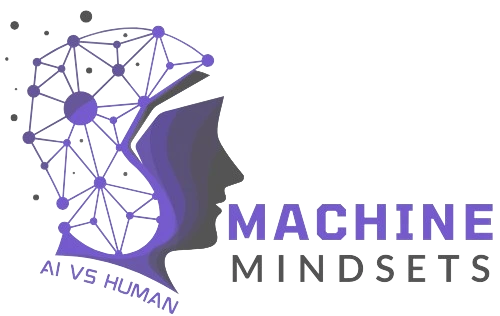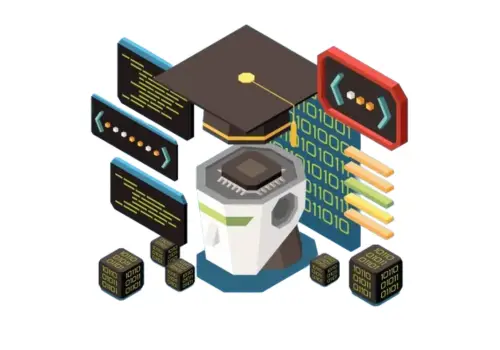Artificial Intelligence (AI) has emerged as a transformative force in various industries, and AI in education is no exception. With its ability to process vast amounts of data and perform complex tasks, AI has the potential to revolutionize the way we learn and teach. In this article, we will explore the power of AI in personalized education and learning enhancement.
Table of contents :
- The transformative power of AI in education
- Benefits of AI in personalized education
- AI applications in educational technology (EdTech)
- AI in digital learning and e-learning
- The role of AI in smart classrooms and adaptive learning
- Machine learning in personalized education
- Challenges and concerns of AI in education
- Future of learning: AI and the classroom of tomorrow
- Implementing AI in education institutions
- The impact of AI on teachers and students
- AI-driven learning enhancement tools and platforms
- Case studies of successful implementations of AI in education
- Ethical considerations in AI-based education
- Conclusion: Embracing the potential of AI in education personalized
The transformative power of AI in education
AI has the capability to transform traditional educational models by providing personalized learning experiences tailored to each student’s unique needs and abilities. Intelligent technologies can analyze student data, such as performance, learning style, and preferences, to create customized learning paths.
By adapting content, pace, and difficulty level, AI ensures that students receive the most effective and engaging learning experience.
Benefits of AI in personalized education
The advantages of AI in personalized education are manifold. Firstly, it enables students to learn at their own pace, ensuring that they fully grasp the concepts before moving on. This personalized approach fosters deeper understanding and retention of knowledge.
Secondly, AI can identify knowledge gaps and provide targeted interventions, allowing students to overcome their weaknesses and achieve academic success. Additionally, AI-powered educational tools can provide real-time feedback, allowing students to track their progress and make necessary adjustments.
AI applications in educational technology (EdTech)
The integration of AI in educational technology, commonly known as EdTech, has revolutionized the way students learn and teachers instruct. AI-powered virtual assistants, such as chatbots, provide instant support and guidance, enhancing the learning experience.
Natural Language Processing (NLP) algorithms enable these assistants to understand and respond to students’ queries in real-time. AI also powers automated grading systems, saving teachers valuable time and providing students with timely feedback.
AI in digital learning and e-learning
Digital learning and e-learning platforms have become increasingly popular in recent years, and AI plays a crucial role in enhancing these platforms. Intelligent algorithms can analyze user behavior and preferences to recommend relevant learning resources, making the learning process more efficient and engaging.
AI can also create personalized assessments and quizzes, ensuring that students are evaluated based on their individual learning objectives.

The role of AI in smart classrooms and adaptive learning
AI has the potential to transform traditional classrooms into smart classrooms by leveraging intelligent technologies. Smart classrooms equipped with AI-powered devices, such as interactive whiteboards and smart projectors, create an immersive learning environment.
These devices can adapt to individual student needs, providing personalized content and interactive learning experiences. Adaptive learning platforms, powered by AI, can track students’ progress and adjust the curriculum accordingly, ensuring maximum learning outcomes.
Machine learning in personalized education
Machine Learning (ML), a subset of AI, has proven to be particularly effective in personalized education. ML algorithms can analyze vast amounts of student data to identify patterns and predict learning outcomes. This enables educators to intervene at the right time and provide targeted support.
ML algorithms can also detect students’ learning preferences and adapt the curriculum accordingly, creating a personalized and engaging learning experience.
Challenges and concerns of AI in education
While the potential of AI in education is immense, it also comes with its share of challenges and concerns. Privacy and data security are major concerns, as AI relies on collecting and analyzing large amounts of personal data. Ensuring the ethical use of AI algorithms is another challenge, as biased algorithms can perpetuate inequalities in education.
Additionally, the implementation and integration of AI in educational institutions require investment in infrastructure, training, and support systems.
Future of learning: AI and the classroom of tomorrow
The future of learning is closely intertwined with AI, as intelligent technologies continue to evolve and shape educational practices. The classroom of tomorrow will be equipped with AI-powered tools and platforms that seamlessly integrate with traditional teaching methods.
AI will enable educators to focus on individualized instruction, while students will benefit from personalized learning experiences tailored to their needs and aspirations. The future classroom will foster creativity, critical thinking, and collaboration, preparing students for the challenges of the digital age.
Implementing AI in education institutions
The successful implementation of AI in educational institutions requires careful planning and collaboration between educators, administrators, and technology experts. It is essential to identify specific goals and challenges that AI can address and develop a comprehensive strategy for integration.
Adequate training and professional development programs should be provided to educators to ensure they can fully leverage the potential of AI. Additionally, partnerships with AI technology providers and researchers can facilitate the adoption and implementation of AI in educational settings.
The impact of AI on teachers and students
AI has a profound impact on both teachers and students. For teachers, AI-powered tools and platforms can automate administrative tasks, allowing them to focus more on individualized instruction and student engagement.
AI can provide valuable insights into student performance and learning patterns, enabling teachers to tailor their teaching strategies accordingly.
For students, AI creates a personalized and adaptive learning experience, enhancing their motivation and engagement. It equips them with the skills and knowledge required to thrive in the ever-changing digital landscape.
AI-driven learning enhancement tools and platforms
AI-driven learning enhancement tools and platforms have revolutionized the way students learn and acquire knowledge. Intelligent tutoring systems provide personalized guidance and support, adapting to individual student needs.
Virtual reality (VR) and augmented reality (AR) technologies create immersive and interactive learning experiences, making abstract concepts more tangible. AI-powered language processing tools enable students to develop strong language skills by providing real-time feedback and correction.
Case studies of successful implementations of AI in education
Numerous case studies demonstrate the successful implementation of AI in education. For instance, the Georgia Institute of Technology developed an AI-powered teaching assistant, “Jill Watson,” which answered student queries on discussion forums.
This reduced the workload of human teaching assistants and provided students with instant support. Another example is Carnegie Learning’s AI-driven math tutor, which adapts to students’ learning needs and provides personalized instruction.
These case studies highlight the effectiveness of AI in improving learning outcomes and student engagement.
Ethical considerations in AI-based education
As AI becomes more prevalent in education, ethical considerations become increasingly important. It is crucial to ensure that AI algorithms are transparent, explainable, and unbiased. Data privacy and security should be prioritized, and personal data should be handled responsibly.
Educators and policymakers must actively engage in discussions about the ethical implications of AI in education and develop guidelines and regulations to ensure its responsible use.
Conclusion: Embracing the potential of AI in education personalized
AI has the power to revolutionize education by providing personalized learning experiences, enhancing student engagement, and improving learning outcomes.
By leveraging intelligent technologies, educators can create adaptive and immersive learning environments that cater to individual student needs. While challenges and ethical concerns exist, the potential benefits of AI in education outweigh the risks.
It is crucial for educational institutions to embrace the potential of AI and invest in its integration to prepare students for the future.
CTA: Embrace the future of education by exploring the power of AI in personalized learning. Discover how AI-driven tools and platforms can enhance your learning experience and prepare you for success in the digital age. Embrace the potential of AI in education and unlock your full learning potential.

